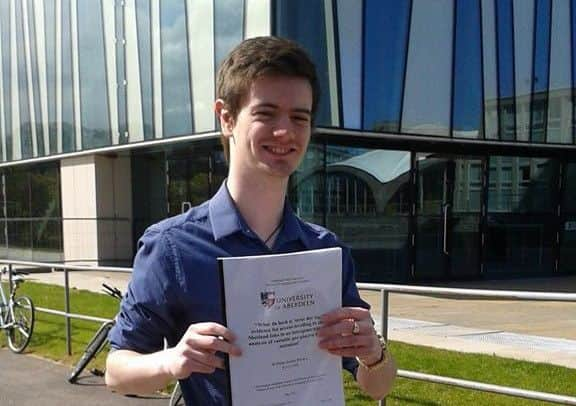Shetland accent '˜could die out in 30 years'


James Brown is a language and linguistics scholar with isles connections.
He says the Shetland accent is rapidly disappearing and may be gone altogether by 2045.
Advertisement
Hide AdAdvertisement
Hide AdMr Brown, whose mother is from Hamnavoe in Burra, examined recordings from a number of Shetland speakers in his research.


He first became interested in the accent change while listening to a BBC Radio Shetland interview about music events at Mareel.
“I have always loved Shetland and the accent and when I heard a girl around my age being interviewed on the radio I was surprised at how similar our accents were.
“She was from Shetland and didn’t have an accent and I grew up in Aberdeenshire but don’t have a strong accent at all.


“Neither of our accents are very broad for where we grew up, and yet we sounded similar despite growing up hundreds of miles apart.
“I found that a lot of Shetlanders feel the accent is changing but aren’t sure why. I wanted to write a paper which proved whether the accent really was changing.”
Shetland linguistics run in the family as Mr Brown’s uncle, John Tait, is also a linguist whose paper on so-called soft mutation, written in 2000, was used by Mr Brown to prove that the accent is changing.
Advertisement
Hide AdAdvertisement
Hide Ad“When Scots say ‘bat’ and ‘bad’ they use the same AH vowel for both words, but Shetlanders say ‘bad’ with something more like an EH sound. This happens for a few other vowels as well. My uncle called this process ‘soft mutation’. My study proves that younger speakers use soft mutation far less than older speakers.”
Mr Brown arranged for recordings of Shetlanders across a range of ages to be made. He then compared the recordings to Scots of a similar age.
He believes the loss of the accent is due to immigration to the isles from Scotland in the 1970s.
“Accents always change for a reason. That girl’s mum wasn’t from Shetland so that’s when I started thinking that immigration after the oil boom in the 1970s was having a noticeable effect on the Shetland accent.
“I believe the accent changed because Shetlanders married non-Shetlanders and had children whose accents were a mix of the two. This continues until the accent disappears.”
Mr Brown intends to take his studies in linguistics further, and hopes to examine the Shetland accent as part of a PhD.
“I really enjoyed my dissertation and would love to go back to the isles for more in-depth research. The accent is so musical to listen to and it would be a shame to see it go.”
• The study can be read free online here http://aberdeen.academia.edu/JamesBrown
DOWNLOAD THE SCOTSMAN APP ON ITUNES OR GOOGLE PLAY
